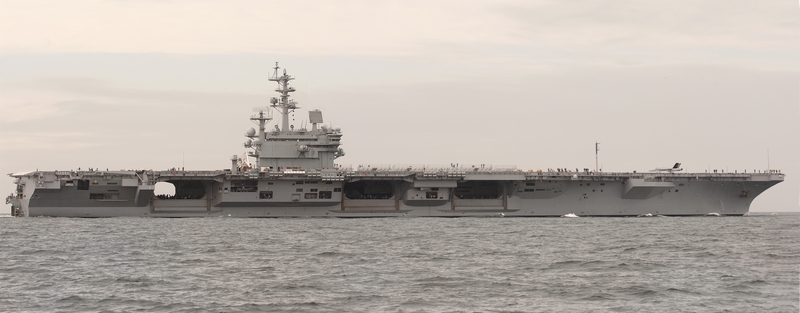
Open the US defence market
The consolidation of Europe's defence industry continues apace, with the creation of a Franco-German-Spanish combine, EADS, being the most significant move to date. There is a danger, however, that European mega-mergers may lead to the emergence of rival "fortresses" on either side of the Atlantic, with companies on one side excluded from competing for contracts on the other. The best way to avoid such a scenario and maintain genuine competition is to encourage the formation of transatlantic defence-industrial alliances.
Such links will remain underdeveloped, however, until the US government and Congress remove many of the buttresses of what is already, to a large extent, a Fortress America. The Europeans have their protectionist instincts, of course. But because the European industry is less consolidated and, in many areas, less technologically advanced, it has an evident self interest in working with the Americans.
Last year, there were real hopes that the Department of Defense (DoD) would attempt to open up the US market. But those hopes have, for the most part, remained unfulfilled. The recent departure of deputy defense secretary John Hamre, who had fought for change, is not an encouraging sign.
Congress has resisted opening the market. It has proved unwilling to provide funds for transatlantic weapons programmes (the fate of MEADS, an American-German-Italian missile-defence programme, hangs in the balance). The lack of such programmes removes an industrial incentive for transatlantic mergers.
No European prime contractor can compete on equal terms for a major order in the US, against Lockheed Martin, Boeing or Raytheon. On the very rare occasions when the Pentagon procures European equipment, it insists that it must be manufactured in the US. Yet US firms have a far greater chance of winning European procurement contracts: even "protectionist" France has bought American early-warning aircraft. The EU buys over 50 per cent of its defence equipment overseas, whereas the US only procures three per cent from foreign suppliers. American concerns over security mean that even transatlantic joint ventures - as opposed to full-blown mergers - are problematic. Stringent restrictions on transfers of US technology mean that Europeans are often reluctant to work with Americans. One of the problems is that while the US and the UK have a "special relationship", the DoD is particularly unwilling to transfer technology to less friendly allies.
America's export controls are another problem. One reason why Europeans are wary of working with US firms is that they fear the US could veto an export from a joint venture that conflicted with US interests.
Perhaps the most serious deterrent to any European attempt to take a controlling interest in a US company is the DoD's insistence on a "proxy board" of US nationals to run the firm in ways that safeguard US security. This is unacceptable to most Europeans, since it effectively bars them from managing their own purchase. Nor do they impose the same criterion on American firms that buy European companies. In January 2000 the DoD announced plans to lift the requirement that Allison (the engine-maker acquired by Rolls Royce) have a proxy board. Instead the DoD will impose a more flexible "Special Security Agreement", which involves only one US official with high security clearance sitting on the board of the American company, while several others are appointed non-executive directors. This is a very positive signal, but it remains to be seen whether other foreign buyers of major US defence firms would receive the same treatment.
Pentagon officials state repeatedly that European firms have an important stake in the US defence industry, citing the Allison example or GEC's takeover of Tracor. But no foreign company has yet acquired or merged with a major US prime contractor. The DoD should encourage one European prime contractor to run the gauntlet and merge with a large US firm. That would force America's government and legislators to handle a practical, rather than a hypothetical, scenario. Then they can modernise the many complex rules on security, technology transfer and export regulation that need attention.
